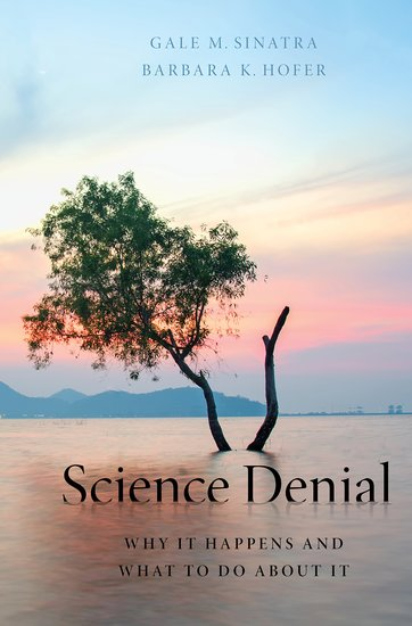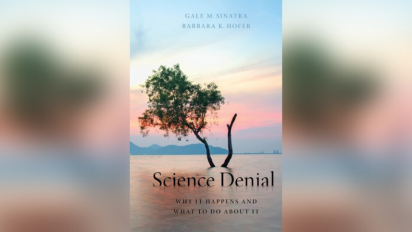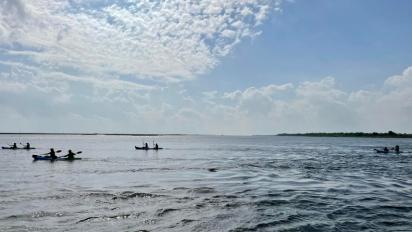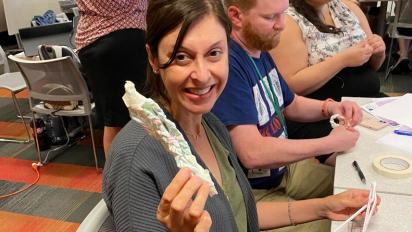[Review] Science Denial: Why It Happens and What to Do About It
Science Denial is a "superb book devoted to a superb cause," writes our reviewer Craig A. Foster.
People seem to gravitate towards a deficit-model approach to science education; that is, they think the cure for science denial is to add more traditional science education. But research shows that just doing more is unlikely to provide the best return on investment. in fact, it might not provide any return at all. The public has unprecedented access to science information; that isn’t stopping people from choosing ivermectin over vaccination.

Science Denial is basically the game plan for doing better than blithely hoping that a one-size-fits-all set of scientific explanations will cause people to jettison scientific flim-flam. it’s painful to admit, but addressing science denial is far more challenging than that. Those who are interested in addressing science denial effectively should definitely read this book.
Sinatra and Hofer’s book addresses a crucial social problem. People maintain various forms of science denial — about vaccination, genetically modified organisms, climate change, evolution, and the shape of the earth, to name a few of the examples discussed in the book — because they seek and process information in flawed ways. Science denial is a public problem because it wastes resources (e.g., your tax dollars) and compromises individuals’ emotional and physical health.
Being a psychology professor, like Science Denial’s authors, i understand the necessity of this wonderful book.
Science Denial covers all the major social science factors that prevent people from developing scientific literacy. These include the proliferation of misinformation, shortcomings in traditional science education, misguided attitudes about science, challenges in evaluating online information, errors and biases in processing information, motivational factors, social influence, and social identity.
It’s regrettably ironic when people use only their intuitions to promote critical thinking. Thankfully, Sinatra and Hofer’s suggestions for addressing science denial are evidence- based. Science Denial draws from well-established social science principles without letting the underlying research compromise readability. Science Denial uses anecdotes, but does so to illustrate concepts, not as evidence.
Those who are interested in addressing science denial effectively should definitely read this book.
The writing is consistently oriented to the everyday person who is genuinely interested in amending scientific misconceptions. Most chapters begin with a personal vignette for context and end with sensible goals tailored to educators, science communicators, policymakers, and the general public.
I particularly appreciated the “Why science is not infallible” section (pp. 6–7). Science communicators might be tempted to portray scientists as stainless paladins selflessly fighting those who are greedy or willfully ignorant. I don’t believe in that approach. The authors maintain credibility by acknowledging science’s mistakes, even while promoting science’s considerable value more generally.
Understanding the sources of science denial is important, but it isn’t a panacea. Consider that those who believe scientific nonsense can be remarkably adept at generating ad hoc explanations to parry legitimate science. These explanations are objectively unrealistic, but they feel realistic to those who really want to believe. Flat-earthers, for example, believe that globers are the ones misinterpreting evidence due to confirmation bias. Accordingly, science deniers who read Science Denial might agree with the book generally while still holding onto their pet beliefs. They might even thereby become better equipped to deflect criticism!
In any case, the task of improving critical thinking broadly is daunting. The deliberate cognitive strategies offered by Sinatra and Hofer — such as “Practice slowing down and allowing for a more thoughtful, informed response” (p. 90) — are entirely justifiable. At the same time, mental habits are slow to change; deliberate thought takes effort and bias rarely makes itself self-evident. Even so, I share Sinatra and Hofer’s hope that individuals will try to put their good advice into practice. Even small gains across many people could make a difference.
Personally, i would have preferred a little more emphasis on altering one’s social environment as a method for addressing science denial. Science Denial definitely encourages this strategy by covering topics such as social identity, social persuasion, and echo chambers, and by suggesting additional science education. Nevertheless, i believe the authors could have encouraged more strongly the benefits of joining organizations that offer sustained lessons in scientific literacy like the Committee for Skeptical Inquiry and, of course, the National Center for Science Education.
But that’s a mere quibble coming from a social psychologist about a treatment that was fittingly rooted in educational psychology. I tip my hat to Sinatra and Hofer for a superb book devoted to a superb cause. I encourage everybody to consider the preventable harm caused by science denial, and to pick up Science Denial, the book, to help us find a solution.
This version might differ slightly from the print publication.




